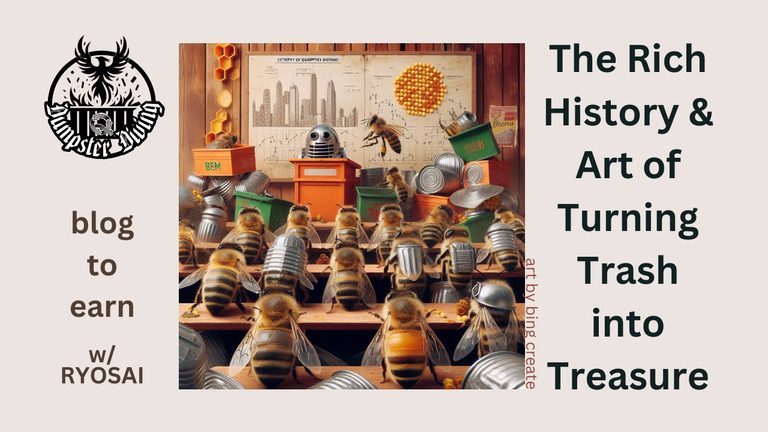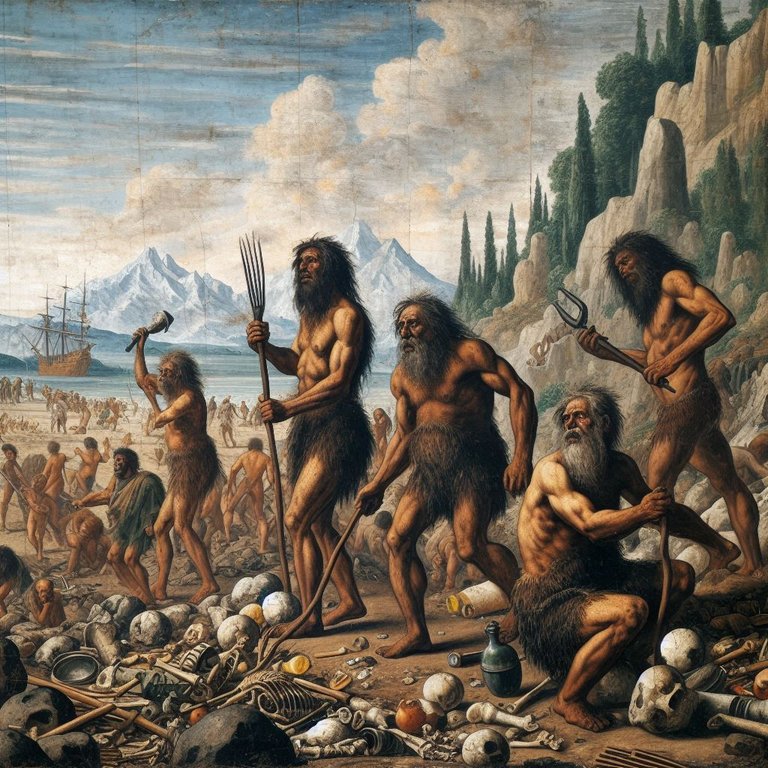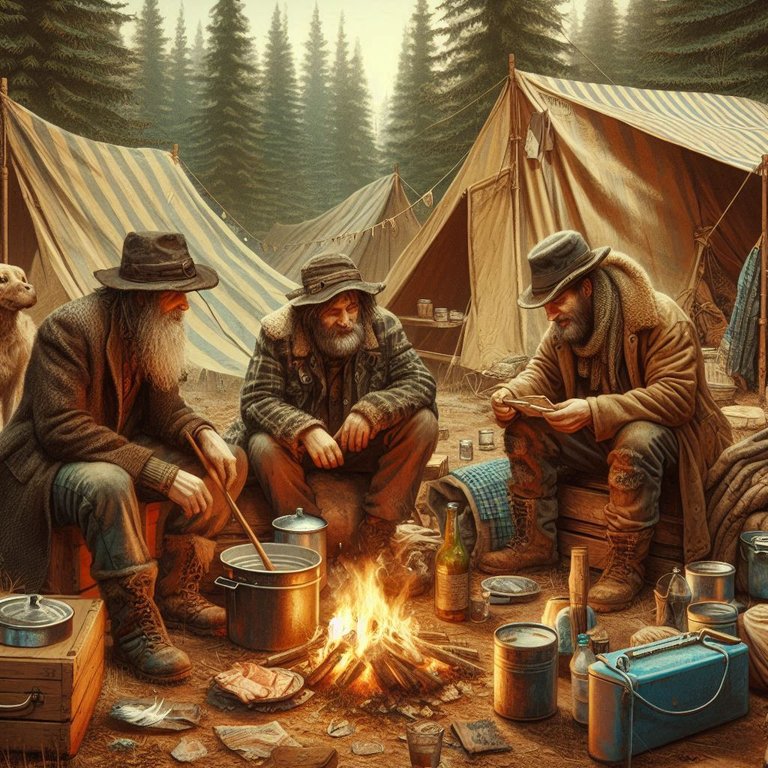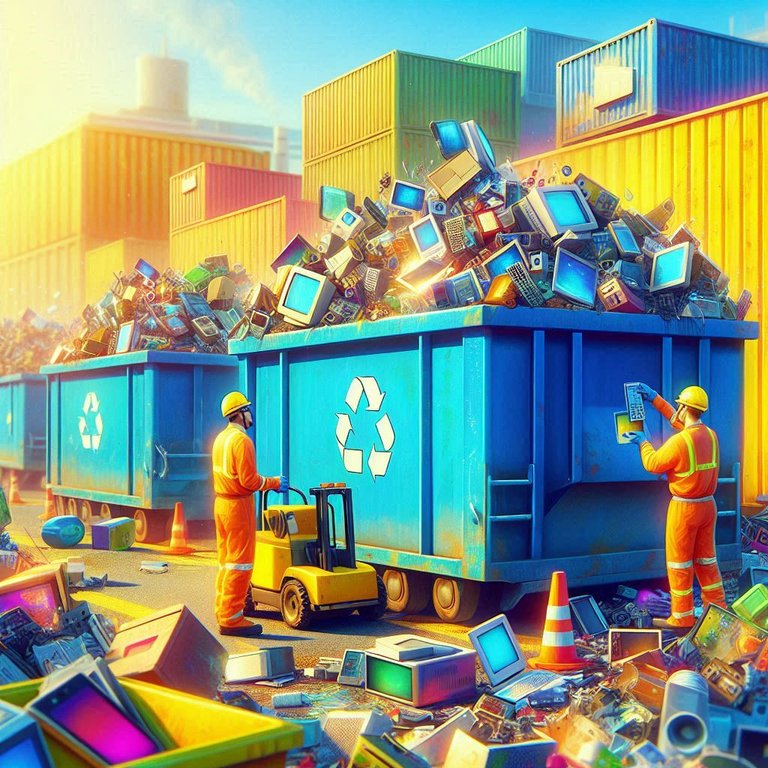
Dumpster Diving from the Great Depression & Beyond!
Hihooo Dumpster Divers, it is your fearless leader @ryosai here!
We’ve talked about the modern dive, but let’s go way back—before dumpsters, before "freeganism," even before the 1930s.
The Great Depression wasn’t the start; it was just one chapter in a long history of reclaiming waste out of necessity, resilience, and rebellion.
Humanity has seen the rise and fall of many civilizations, and we are seemingly still picking up the pieces of our predecessors.
Can we build a better world where all needs are met, and all things remain valuable?
The art & pleasure of turning trash into treasure!

Pre-20th Century: "Waste Not" Was the Norm
Before industrialization, most people lived by
"use it up, wear it out, make it do, or do without."
Scavenging wasn’t a counterculture choice—it was daily life.
Ragpickers (1700s-1800s): In cities, poor workers (often immigrants & children) sifted through trash for rags, bones, and scrap metal to sell to mills and factories.
Swill Children (1800s): Kids in slums collected spoiled food (swill) to feed pigs or resell. Nothing went to waste.
Goodwill (1902): Founded by Rev. Edgar J. Helms, a Methodist minister who collected discarded household goods, clothing, and furniture from wealthy Bostonians.
Funny story: Nearly every time I have attempted to dumpster dive at Goodwill the employees are instructed to provide a verbal warning before notifying law enforcement and trespassing me(do not argue just always leave when asked).
It will happen to you as well so don't take it personal stay vigilant and dive when they go home from their wage work if you must.

The Great Depression (1929-1939): Survival Scavenging
When the economy "collapsed", millions turned to scavenging to survive.
Breadlines & Soup Kitchens couldn’t meet demand, so people foraged in alleys, markets, and trash piles for food scraps.
Hobo Culture: Train-hopping migrants developed a secret symbol system (hobo code) to mark safe places to eat, dumpster dive, or sleep.
Personally, been living that van life for a few years now and I relate heavily to the hobokin code of ethics: live free and work hard.
Corporate Waste Exposed: While people starved, food companies destroyed crops to keep prices high—sparking outrage that still echoes today.
The 1960s-70s: From Survival to Rebellion
Post-WWII abundance led to waste, but activists fought back:
The Diggers (San Francisco): This anarchist group "liberated" grocery store dumpsters and served free meals in parks.
"Gleaning" Revival: Inspired by ancient traditions (like Biblical gleaning), groups harvested leftover farm crops for the hungry.

Why This History Matters Now
The past reminds us: Dumpster diving isn’t new—it’s a human tradition of resilience.
Waste is political: From Depression-era hunger to today’s 30-40% food waste, diving challenges greed & inefficiency.
We’re part of a legacy: Every time we save trash, we honor generations who refused to let needless waste go unchallenged.
Ever found something that felt like a historical artifact? Let’s hear ‘em! 👇
(Keep diving, keep sharing, and keep rewriting what "waste" really means!)
